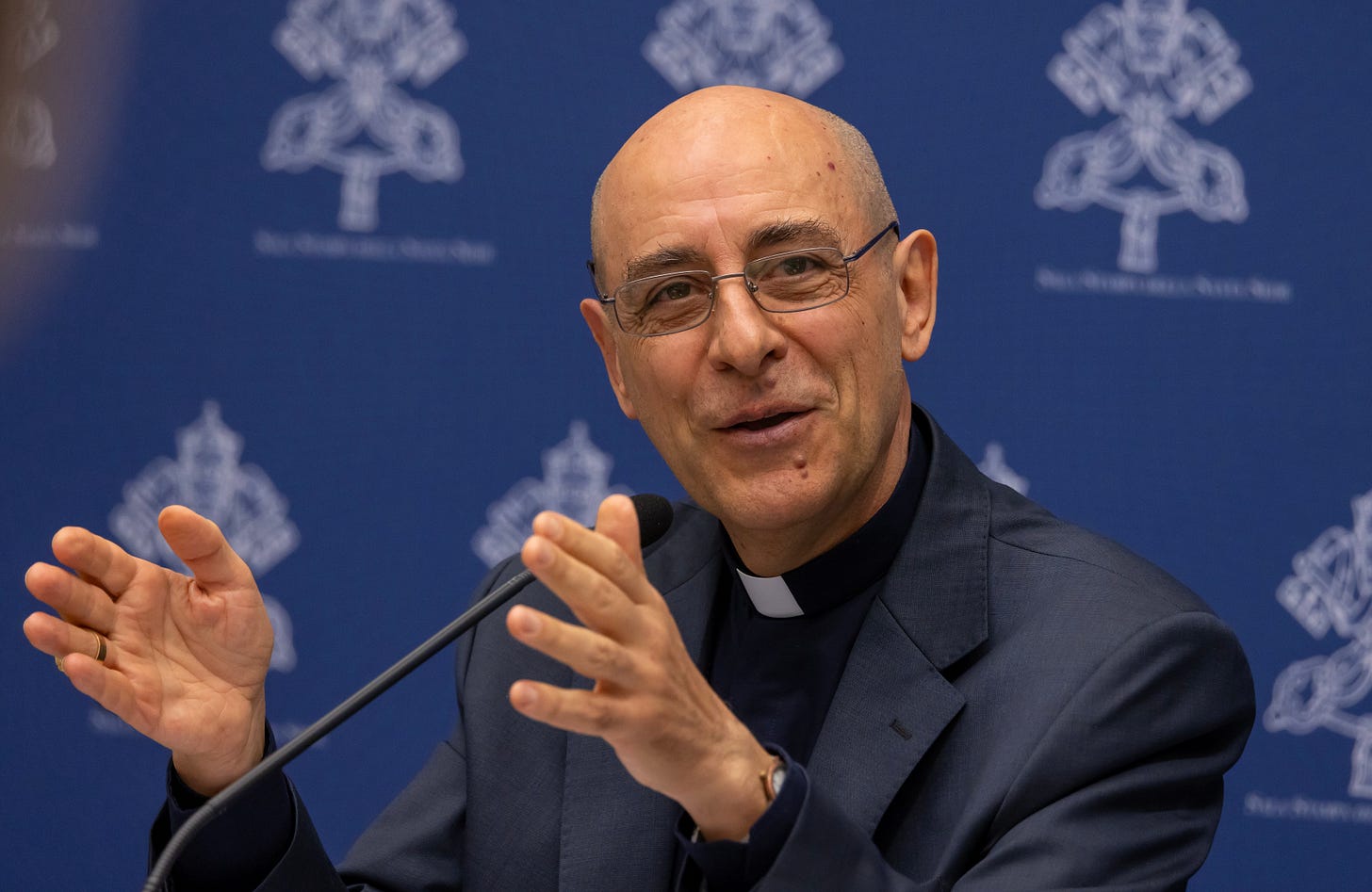German bishops once again in Vatican for talks- Difficult framework conditions for further reforms
Many bishops believe that the pressure for reform is growing. With this in mind, they are once again holding talks in Rome.

Vatican City (KNA) A delegation of German Catholic bishops will once again meet with leading Curia cardinals in Rome this Friday. Following the meetings on 26 July 2023 and 23 March 2024, this is the third round of this kind. The exchange was agreed after differences of opinion on canon law and dogma came to light in a "top-level meeting" with curia cardinals during a visit to the Vatican by the entire German Bishops' Conference in November 2022.
Both sides are under considerable pressure this time. In the Vatican, the Argentinian curia cardinal Victor Fernandez is under fire one year after his appointment as chief dogmatist by his compatriot Pope Francis. His reform proposal to authorise informal church blessings for homosexual couples in December 2023 has caused harsh criticism and harsh rejection, particularly in the Catholic Church in Africa and Eastern Europe. Ecumenical dialogue with Eastern churches has also suffered as a result. Fernandez himself had to travel to Cairo to appease the large sister church of the Copts.
Since then, it has been even more difficult for the prefect of the faith, who is under fire from the conservative side, to meet demands for changes in doctrine and canon law. Centrifugal forces are also on the rise in other parts of the Catholic world church. In India, for example, where conservatives are strictly opposed to changes in the liturgy and even seem prepared to split the church to do so. Or in Europe and North America, where debates about special rights for adherents of the old rite are once again becoming more heated and new splits are threatening.
These are not good prerequisites for easing up on the question of who has authority in the church. Yet this could be precisely one of the topics at the round of talks in Rome. The majority of German bishops, led by their chairman Georg Bätzing (Limburg), are pushing for a change in the structure of ecclesiastical power. This is because they have identified the closed system of priests and bishops in the debates of the Synodal Path in Germany as a decisive cause of sexual abuse by clerics and its cover-up in the clerical hierarchy.
In order to break up this closed system, they first want to ensure that lay people are more involved in the selection of bishops in future. And then, in the dioceses, and also at national level, non-clergy of all genders should be involved in consultations and decisions - not least in personnel decisions. Because in dealing with perpetrators of abuse within the old clerical system, they have often spread the evil instead of stopping it.
The Germans have not yet succeeded in convincing their Roman counterparts that it is primarily such "systemic" causes that favour abuse and cover-ups - and that the structures must therefore be changed. In the Vatican, the assumption continues to prevail that every case of abuse is a case of individual guilt that must be punished, nothing more.
Nevertheless, the Pope has introduced the principle of accountability in the hierarchy, which is also emphasised by Roman interlocutors, primarily at the urging of US bishops. Since then, not only perpetrators have been penalised under canon law, but also those bishops who have neglected their duty of supervision and reporting. In the view of many in the Vatican, this is structural reform enough to get the problem under control.
They consider the German proposal to divide power between the laity and bishops to be neither necessary nor responsible. In their view, this would weaken the hierarchical structure of the church and could exacerbate the general lack of direction.
This is where the pressure that the German bishops are increasingly feeling comes into play. Before the Synodal Path 2020 began its debates, the annual number of people leaving the church was still around 200,000. Since the reform debate began, it has doubled and since then has hovered around 400,000 a year, with a peak of 520,000 in 2022.
Most German bishops interpret these alarming figures as an incentive for further reforms. However, representatives of the conservative minority, who also repeatedly come to the Vatican for talks, interpret the figures quite differently: as a result of too little clear church orientation and a dangerous dispute over direction.
The fact that many in Rome share this view does not make it any easier for the delegation of reform-minded bishops. They want to convince their Roman dialogue partners of the opposite interpretation of the dramatic situation of the Catholic Church in Germany and gain approval for new reform steps.
Ludwig Ring-Eifel (KNA)



